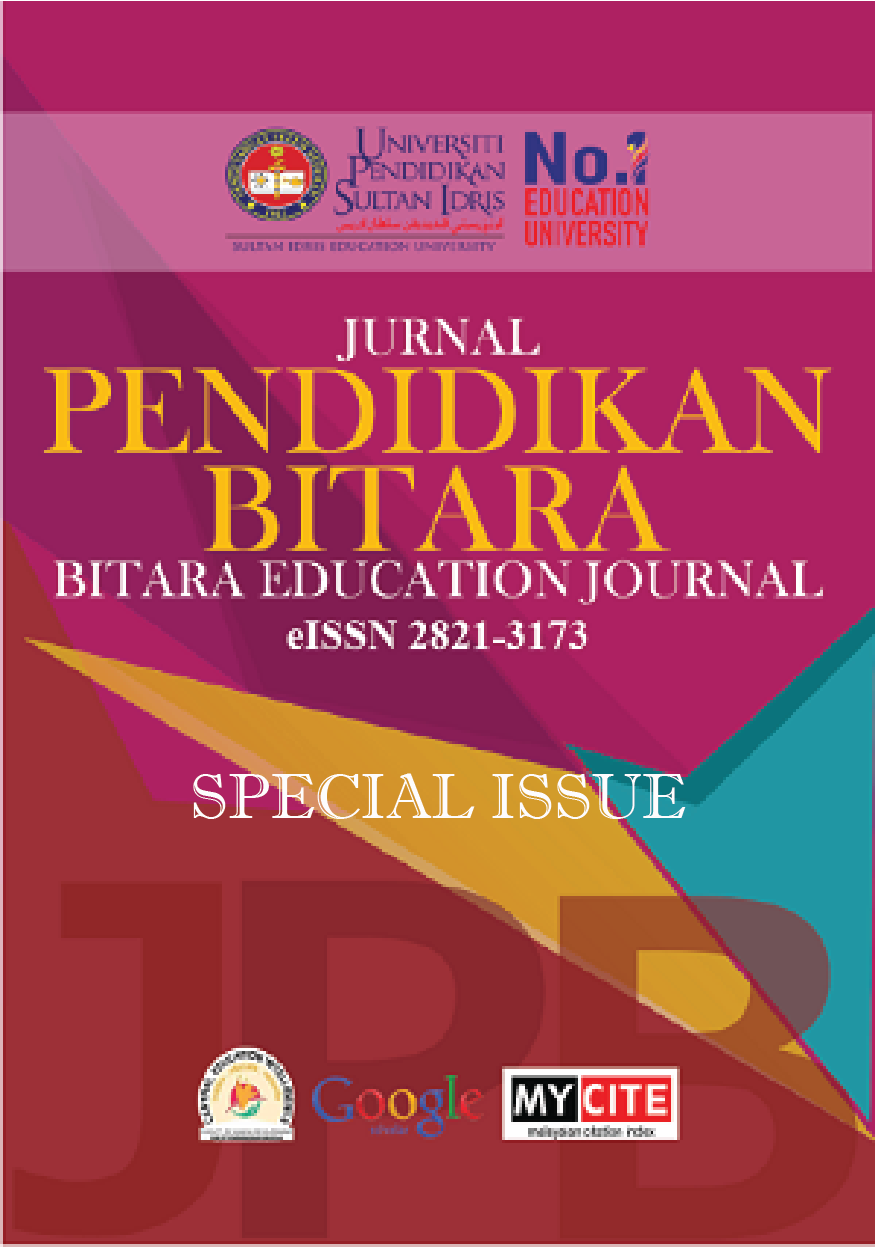The impact of collaborative teaching on teaching efficacy among inclusive teachers in Malaysia
DOI:
https://doi.org/10.37134/bitara.vol12.sp.9.2019Keywords:
special needs, collaborative teaching, education, inclusion, teacher training, teaching efficacyAbstract
The purpose of this study is to explore the extent of collaborative practices for teaching students with special needs, among mainstream teachers and special needs teachers in Malaysia. Using a qualitative research method, data was generated through focus group sessions with four groups of teachers: pre-service mainstream teachers, in-service mainstream teachers, pre-service special education teachers, and in-service special education teachers. Interview questions were derived from the Teacher Efficacy in Inclusive Practice (TEIP) and the Collaborative Teaching Survey. Through thematic analysis, themes related to collaborative practices and teacher efficacy levels were derived from the participants’ responses. The findings show that although the Malaysian teachers engage in collaborative practices, their perceptions towards students with SEN and their engagement differ according to their roles. Mainstream teachers were found to regard collaboration as seeking advice and exchanging ideas with special education teachers. Special education teachers, on the other hand, suggested that they preferred collaboration in implementing classroom inclusive practices. Interestingly, SEN teachers viewed collaboration with parents as essential to their teaching as well. The findings also suggested that knowledge and experiences in special education influence teachers’ levels of teacher efficacy. The findings of this study support the cruciality of collaborative practices as a means of resolving issues of inadequate resources for students with special or additional needs in the Malaysian classrooms.
Downloads
References
Bailey, L., Nomanbhoy, A., & Tubpun, T. (2015). Inclusive education: teacher perspectives from Malaysia. International Journal of Inclusive Education, 19(5), 547-559.
Carroll, A., Forlin, C., & Jobling, A. (2003). The impact of teacher training in special education on the attitudes of Australian preservice general educators towards people with disabilities. Teacher Education Quarterly, 30(3), 65-79.
Jelas, Z. M. (2010). Learner diversity and inclusive education: A new paradigm for teacher education in Malaysia. Procedia-Social and Behavioral Sciences, 7, 201-204.
Lee, F. L. M., Yeung, A. S., Tracey, D., & Barker, K. (2015). Inclusion of children with special needs in early childhood education: What teacher characteristics matter. Topics in Early Childhood Special Education, 35(2), 79-88.
Mag, A., Sinfield, S., & Burns, T. (2017). The benefits of inclusive education: new challenges for university teachers. In MATEC Web of Conferences, (Vol. 121, p. 12011). EDP Sciences.
Malinen, O. P., Savolainen, H., Engelbrecht, P., Xu, J., Nel, M., Nel, N., & Tlale, D. (2013). Exploring teacher self-efficacy for inclusive practices in three diverse countries. Teaching and Teacher Education, 33, 34-44.
Ng, M. S. H. (2015). Factors Influencing the Success of Inclusive Practices in Singaporean Schools: Shadow Teachers Perspectives (Master's thesis).
Nishan, F. (2018). Challenges of regular teachers in implementing inclusive education in schools of Maldives. International Journal of Education, Psychology and Counseling, 3(10), 88-102.
Park, M. H., Dimitrov, D. M., Das, A., & Gichuru, M. (2016). The teacher efficacy for inclusive practices (TEIP) scale: Dimensionality and factor structure. Journal of Research in Special Educational Needs, 16(1), 2-12.
Sevimel, A., & Gonca, S. (2018). The factors affecting teacher efficacy perceptions of Turkish pre-service English language teachers. The Journal of Language Learning and Teaching, 8(1), 1-17.
Sharma, U., Forlin, C., & Loreman, T. (2008). Impact of training on pre‐service teachers' attitudes and concerns about inclusive education and sentiments about persons with disabilities. Disability & Society, 23(7), 773-785.
Downloads
Published
Issue
Section
License
Copyright (c) 2019 UPSI Press

This work is licensed under a Creative Commons Attribution-NonCommercial-ShareAlike 4.0 International License.





